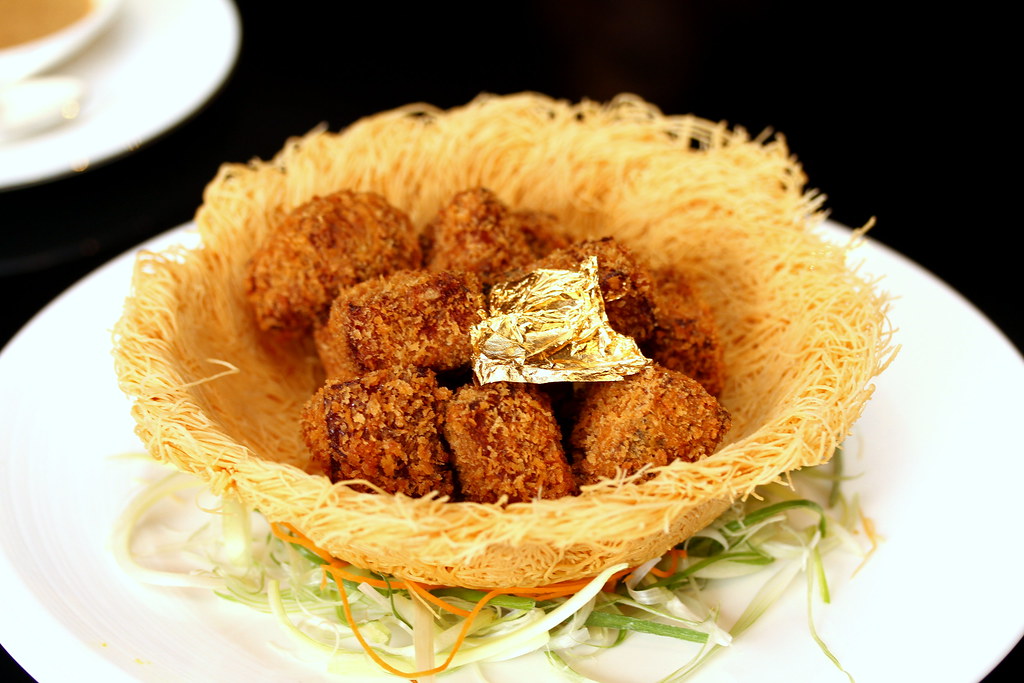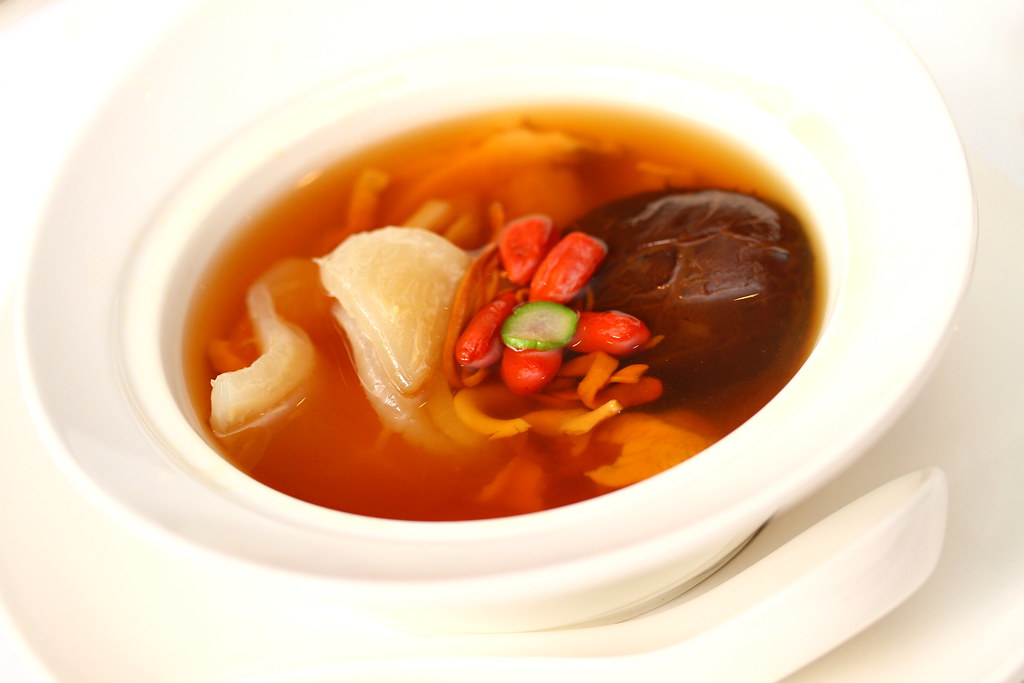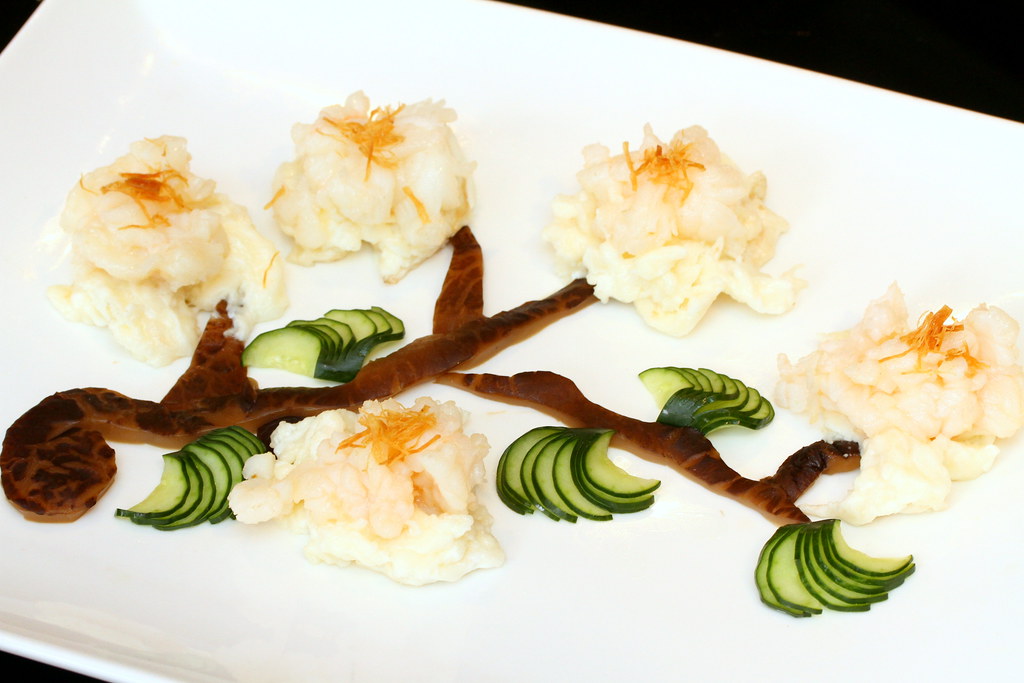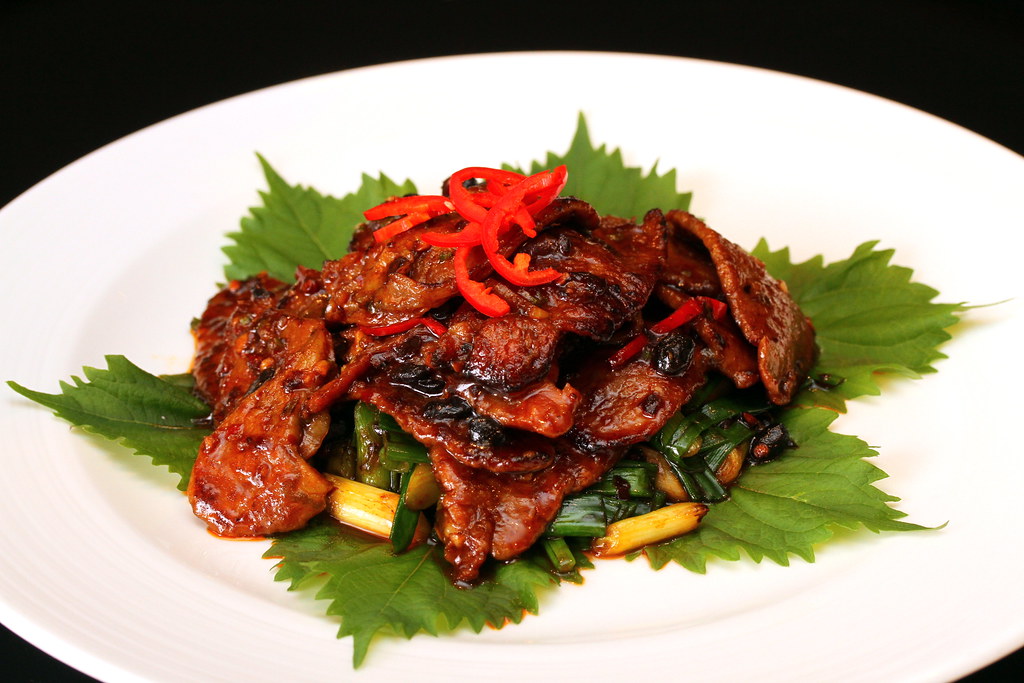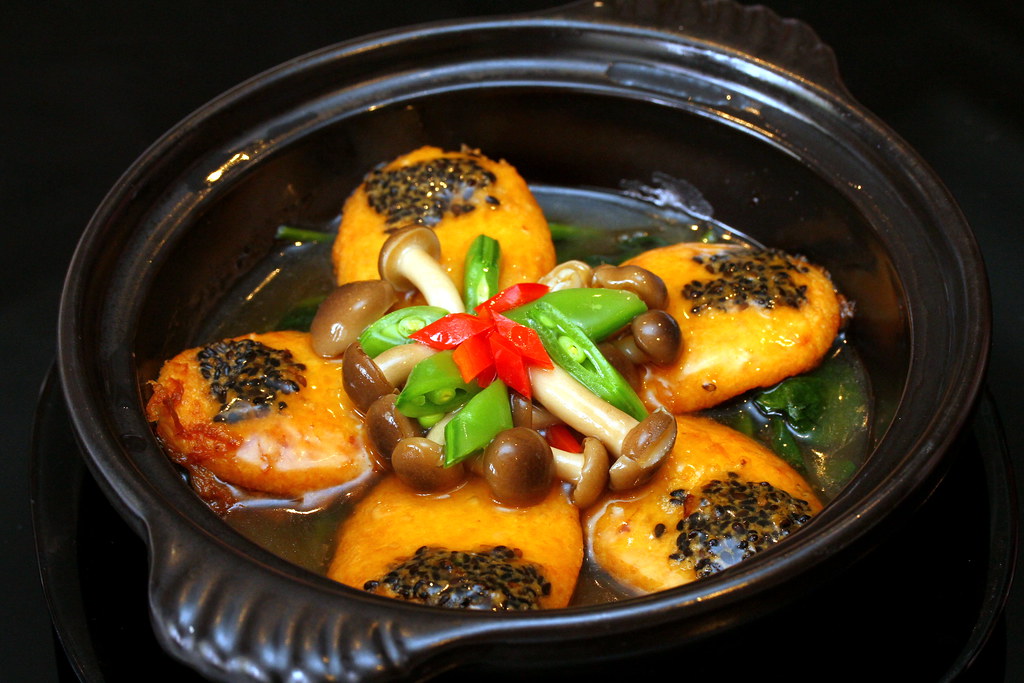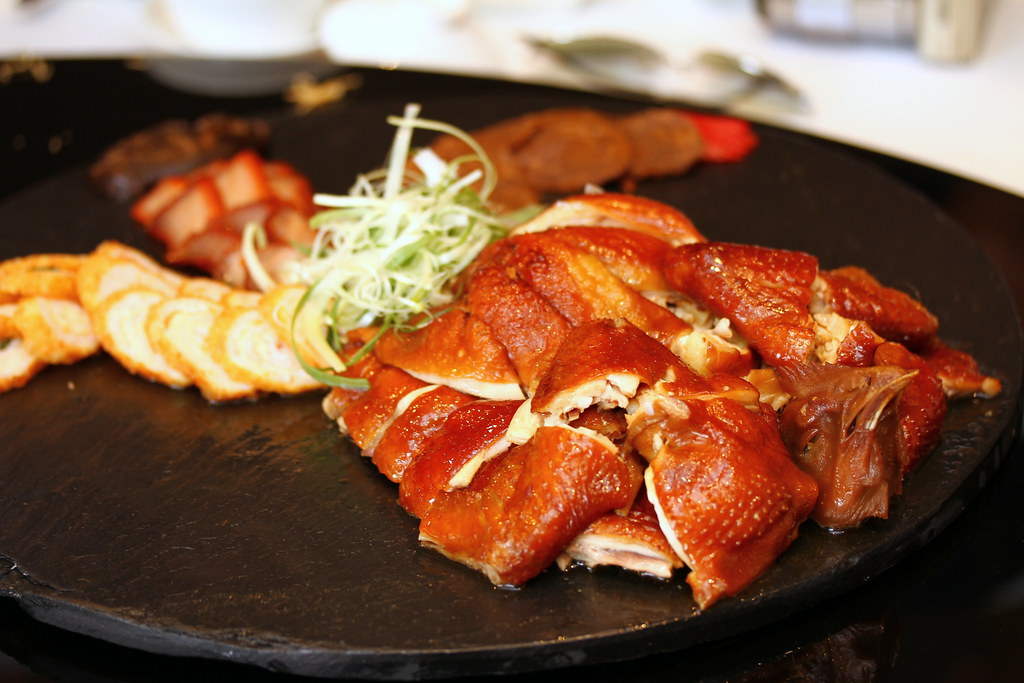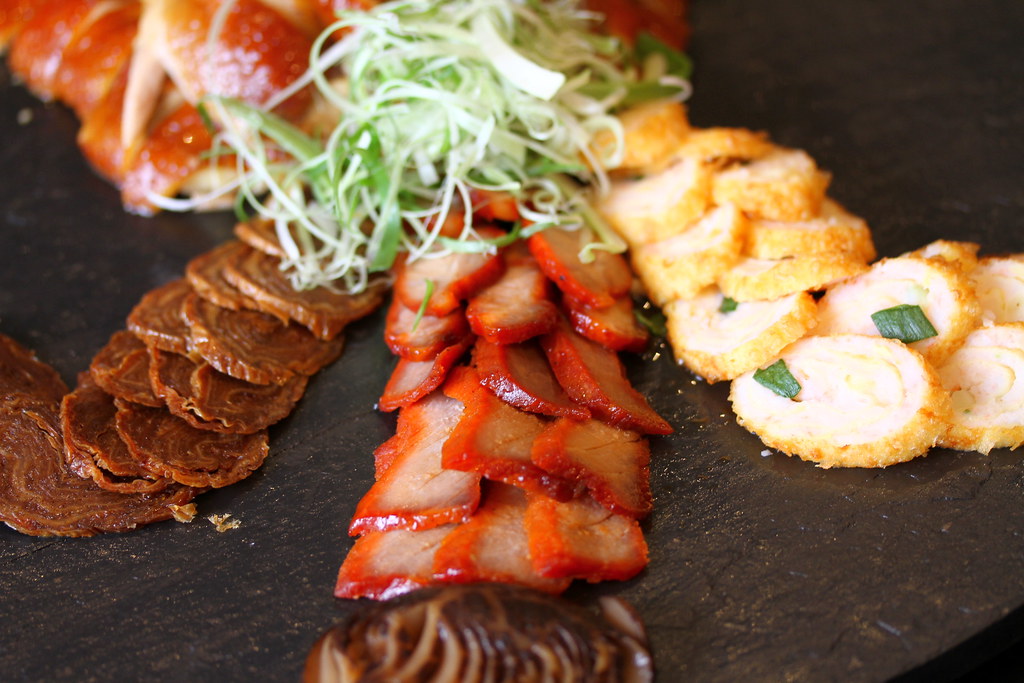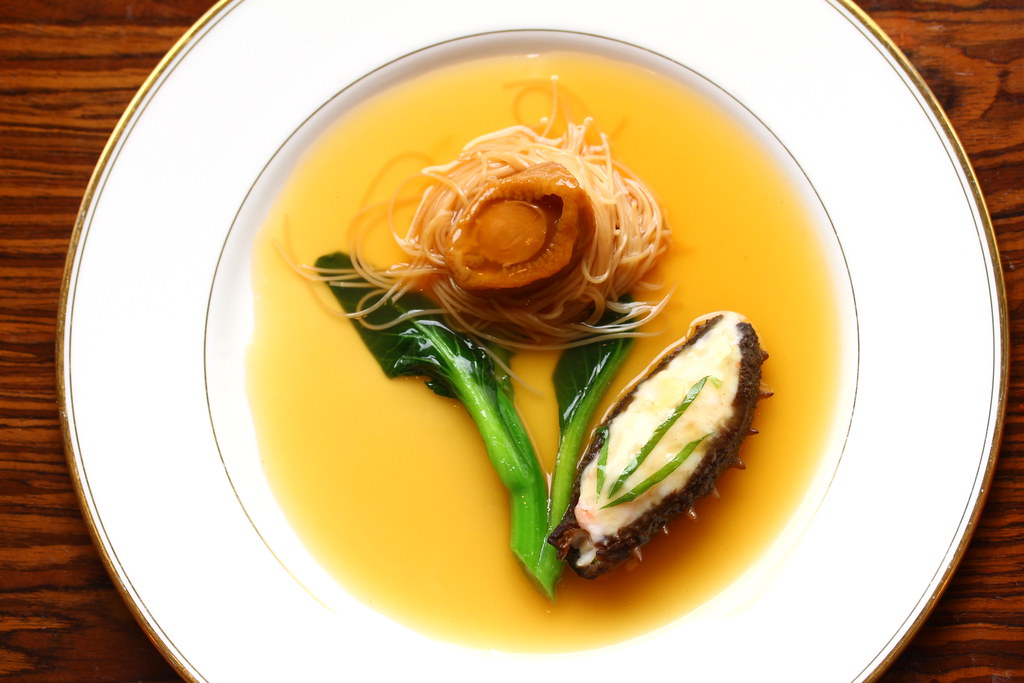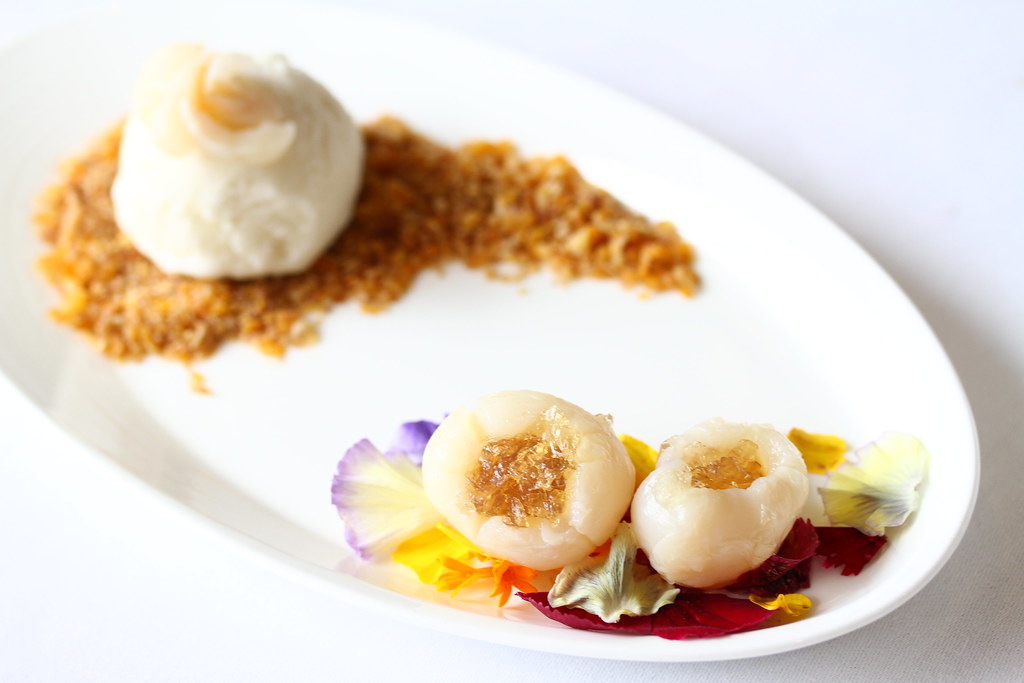Exquisite Dynasty Feast at Summer Palace, Regent Singapore
October 07, 2013
China was divided for long periods of its history, with different regions being ruled by different groups. Enthralled by the luxuriant landscapes of the famed royal gardens in Beijing, China – which Summer Palace was named after – and fascinating fables passed from generation to generation, Executive Chinese Chef Liu Ching Hai has crafted an exquisite 8-course feast inspired by imperial tales spanning five major dynasties in Chinese history.
While Chef Liu stays true to centuries-old traditional Cantonese preparation methods, he offers his culinary interpretation of Chinese history which unfolds delectably in each dish.
We are all familiar with Dongpo Pork, which is Hangzhou’s trademark dish. The dish is named after revered Song Dynasty poet, artist and calligrapher Su Dongpo, who is supposed to have invented, or at least inspired it. Instead of doing the usual way – braise pork belly, Chef Liu created Drunken Dong Po Pork (东坡醉香肉) – fragrant fried pork belly that are crisp on the outside but meltin-your-mouth tender on the inside.
Punctuated with a dash of premium Chinese rice wine and gold leaf, his version rivals the slow braised pork belly slices that Su was deemed to have created when he was banished after being at odds with the government. The layer of fat in each dong po rou is making meat taste good. The accompanying sesame sauce kinda help offset the fat. The fried mee sua bowl is so addicted that we ate it up as well.
The forerunner of the iconic “Buddha Jumps Over the Wall”, this nourishing Doubled Boiled Treasures Soup (满坛香) was said to be crafted by an official of Fuzhou in the 1800s to impress the then-governor of Fujian province. Chefs from the Qing Dynasty enhanced the recipe, prompting poets to exalt that the aroma of soup would make Buddha jump a wall just for a taste.
Chef Liu’s restorative rendition comprises of succulent fish maw, conpoy, sea whelk, black mushrooms, cordyceps and wolfberries in flavourful superior broth. Clear broth but flavourful, and you get a whole of premium ingredients in a bowl of soup!
Peach Blossoms in the Snow (雪夜桃花) is so beautifully plated! It was said that when Emperor Tang Gaozong was bedridden with sickness, he was cheered by the early spring scene of beautiful peach blossoms in the snow. Heartened by his enthusiasm, Empress Wu Zetian instructed the imperial chefs to whip up some dishes, among which was a simple scrambled egg white topped with plump shrimps.
The emperor loved it so much that he asked for the name of dish, to which the Empress remarked ��“Peach Blossoms in the Snow – just as you saw in the window.” Like a painting on a plate, Chef Liu’s interpretation of the tale blends perfectly the rich, creamy texture of scrambled egg whites with tender sweet lobster, crowned with a confetti of finely diced conpoy. The lobster meat was sweet and chewy, which is a total contract from the soft egg whites.
I love the Fried Lamb Loin with Spicy Sauce (忽必烈羊柳) where Chef Liu tosses generously cut slices of tender lamb loin in an intensely flavoured spicy black bean garlic sauce. The dish was said to have been created by accident when Khan’s enemies attacked unexpectedly while his chefs were preparing his favourite meal of double-boiled mutton.
Left with no time, his imperial chefs stir-fried the mutton quickly with basic spices to ease his hunger. I don’t think Khan would have the mood to eat then lah. But in the end, he won the battle so Khan requested that the dish be served before every battle. Chef Liu’s rendition is slightly spicy and he has good control of the fire, ensuring the meat is cooked yet tender.
Delicately crisp on the outside yet silky smooth on the inside, Chef Liu’s Deep-Fried Imperial Beancurd in Claypot (宫庭窝贴豆腐) rests on a luscious bed of judiciously seasoned spinach. Stuffed with century egg and diced water chestnuts, the dish was inspired by Ming Emperor Zhu Yuanzhang who was the son of a poor farmer and beancurd seller.
As a child, Zhu Yuanzhang once begged for food from a restaurant and was given stuffed beancurd which left a deep impression. He loved the dish so much that when he became emperor after leading a peasant revolt against the Mongol-ruled Yuan dynasty, he invited the restaurant cooks to become his imperial chefs.
Tea-Smoked Soy Chicken (太爷鸡) was first made famous by Zhou Gui Sheng, an entrepreneurial official from Jiangsu province who decided to introduce his hometown cooking methods to Guangdong after he lost his posting in a revolution. A chicken connoisseur, Zhou improved on existing soy chicken recipes in the province to create a new dish that grew rapidly in popularity.
Chef Liu smoked the chicken in a wok with brown sugar and fragrant jasmine tea leaves, leaving it meltingly tender. The char siew was disappointing but nevermind, focus on the chicken that exudes a subtle floral aroma, with a skin that slips off to reveal
perfectly moist meat. This is good itstlf or you can dip it into the minced ginger.
Want to live longer? Then must eat Longevity Noodles with Sea Cucumber and Abalone (鲍鱼遼参麵)! This dish retells Emperor Qianlong’s encounter with an old woman at the beach. The old lady drank the abalone and sea cucumber wine daily for longevity – a secret recipe she shared with the emperor.
The elegantly sauced dish comprises of silky smooth strands of longevity noodles that’s contrasted beautifully by the springy stuffed sea cucumber and abalone with a proper hint of chew. I like the sea cucumber, chestnut is added to the stuffing which made it crunchy! I wished the sauce was more flavourful.
Reflecting famous Imperial Concubine Yang Gui Fei’s delicate beauty and love for the seasonal lychee, this refreshing Lychee Ice Cream with Bird’s Nest (燕窝荔枝雪糕) balances the fruity sweetness of lychee with the mild flavours of luxurious bird’s nest. One of the Four Great Beauties of China (四大美人), Yang was so enamoured of the fruit that the Emperor commissioned his officials to bring them from the South so she can enjoy them year round.
Dynasty Feast is available on Mon-Fri (Dinner) and Sat – Sun (Lunch and Dinner). It costs $108++/per person; $1080++/per table of 10.
Summer Palace, Regent Singapore
Address: Regent Singapore Level 3, 1 Cuscaden Road
For reservations, please call: 6725 3288 or email: summerpalace.rsn@fourseasons.com
